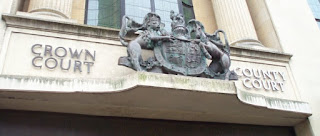Brendan O'Neil blogs on the Spectator: "The Lord Sewel scandal makes me feel proud to be British. For here, thanks to some glorious John Wilkes-style dirt-digging by the Sun — in your face, Leveson! — we have a proper political scandal. This ain’t no yawn-fest about MPs claiming the cost of a Kit-Kat or accidentally favouriting a gay-porn tweet: sad little pseudo-scandals which in recent years have tainted the good name of ignominy. No, the fall of Sewel is a full-on, drugged-up, peer-and-prostitutes scandal, of the kind Britain used to be pretty good at before the square Blairites and cautious Cameroons took over. The disgracing of Sewel is a reminder of British politics at its saucy best. Sewel, I salute you."
Peter Barron in the Northern Echo: "If we needed a reminder of why so many powerful figures would like to curtail Britain’s free press – and why that freedom remains so vital – it has arrived in a blur of white powder and pink, ill-fitting ladies’ underwear."
Meirion Jones on Press Gazette: “People said they won't sack you after Savile but they will make your life hell. Everyone involved on the right side of the Savile argument has been forced out of the BBC.”
Peter Barron in the Northern Echo: "If we needed a reminder of why so many powerful figures would like to curtail Britain’s free press – and why that freedom remains so vital – it has arrived in a blur of white powder and pink, ill-fitting ladies’ underwear."
Meirion Jones on Press Gazette: “People said they won't sack you after Savile but they will make your life hell. Everyone involved on the right side of the Savile argument has been forced out of the BBC.”
 Jane Martinson in the Guardian: "Faced with competition from social media sites such as Facebook in which news and information are shared by friends and family, why should anyone trust Gawker, or the FT, or even the BBC if they are seen as prone to overt influence by advertisers, run by faraway private corporations or bullied by the government?"
Jane Martinson in the Guardian: "Faced with competition from social media sites such as Facebook in which news and information are shared by friends and family, why should anyone trust Gawker, or the FT, or even the BBC if they are seen as prone to overt influence by advertisers, run by faraway private corporations or bullied by the government?"
Patrick Smith @psmith on Twitter: "Doing something that involves looking at court cases across UK and you quickly realise that if local papers don't report them, no one does."
NUJ general secretary Michelle Stanistreet, in a letter to FA chair Greg Dyke: "I am writing to you because of our concern over a worrying trend among football clubs to ban reporters and instead have their own hand-picked writers to peddle propaganda from the proprietor's point of view."
The Football Supporters’ Federation, quoted in the Guardian: “An objective and independent press is vital, and is often the only way that fans can find out the truth about what’s going on at their clubs. The NUJ believes censorship by football club owners is unacceptable; they should be held to account for the decisions they make and the way they run the club. It is the fans who will be the losers.”
Santha Rasaiah, News Media Association's legal policy and regulatory affairs director on Government plans to review the Freedom of Information Act: "The Government must not cut away the public right to know. The Freedom of Information Act requires extension, not restriction. It already allows a space for frank policy advice, prevents vexatious use and avoids onerous costs burdens. We must not allow the Act’s tenth anniversary to be marked by an attack upon the Act and a retreat into official secrecy.”
The Observer in a leader: "On the whole, Japanese politicians and business chiefs expect, and receive, a degree of polite media compliance that is wholly alien to British journalism. In Tokyo press interviews, for example, it is routine to be told to submit questions in advance.Will these careful ways rub off on the FT, a newspaper of fierce intellectual integrity and an often unexpectedly liberal editorial line? Time will tell."
Michael Woolff on USA Today: "There are two lessons from the sale of the Financial Times for $1.3 billion by its corporate parent Pearson to Nikkei, a Japanese newspaper company. The first is never believe a media company when it says it won’t sell something. The second is that newspapers, at least some newspapers, heretofore consigned to the dust heap, are back in business."
Michael Woolff on USA Today: "There are two lessons from the sale of the Financial Times for $1.3 billion by its corporate parent Pearson to Nikkei, a Japanese newspaper company. The first is never believe a media company when it says it won’t sell something. The second is that newspapers, at least some newspapers, heretofore consigned to the dust heap, are back in business."



















































